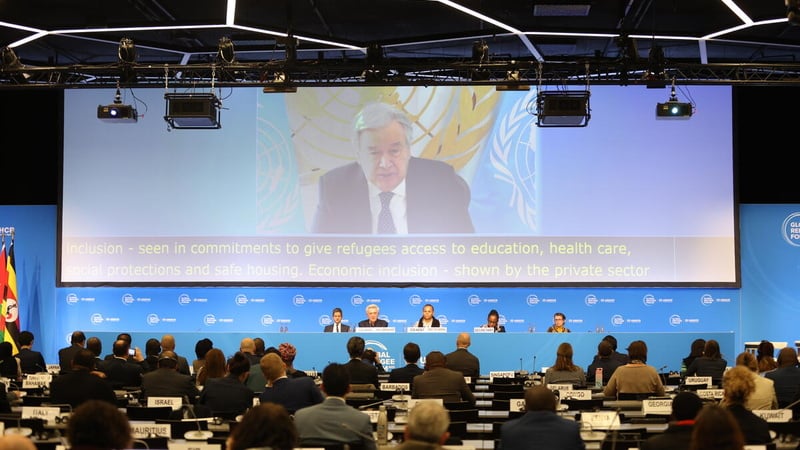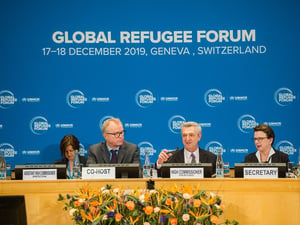Global Refugee Forum 2023
Global Refugee Forum 2023

Read the Outcomes of the Global Refugee Forum 2023
Held every four years, the Global Refugee Forum is the world’s largest international gathering on refugees, designed to support the practical implementation of the objectives set out in the Global Compact on Refugees: Ease pressures on host countries, enhance refugee self-reliance, increase access to third-country solutions and improve conditions in countries of origin.
Over 4,000 participants from 168 countries attended the Forum in 2023, including 320 refugee delegates. A further 10,000 people followed the proceedings online.
The 2023 Forum saw over 1,750 pledges made to support refugees and their host communities, including 47 multi-stakeholder commitments that contribute to the agreed key outcomes of the Forum. An estimated $2.2 billion in new financial commitments by States and other actors was announced. These outcomes offer a source of hope to millions refugees displaced worldwide.
The Global Refugee Forum 2023 was co-convened by five States – Colombia, France, Japan, Jordan and Uganda, and co-hosted by the Government of Switzerland and UNHCR.
Outcomes of the Global Refugee Forum 2023
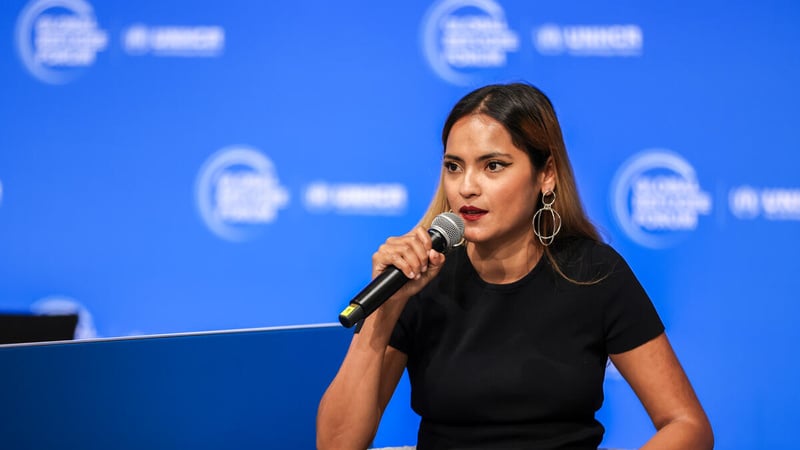
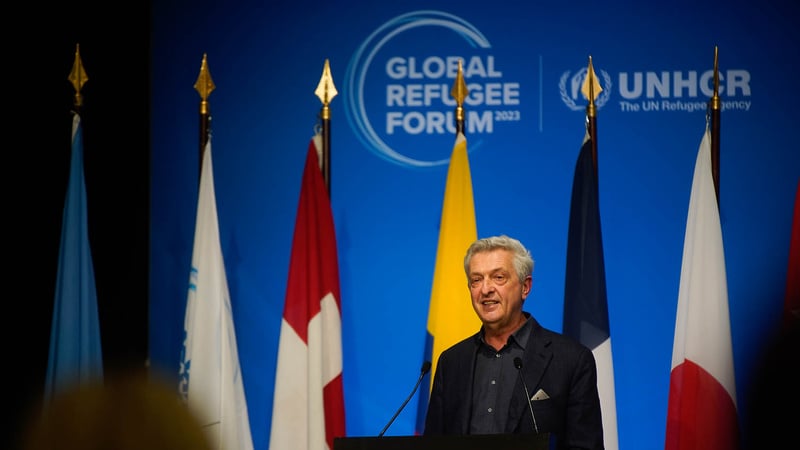
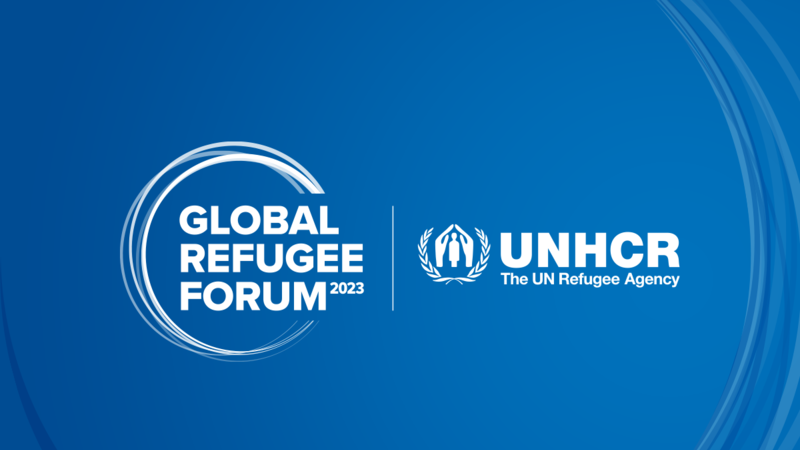
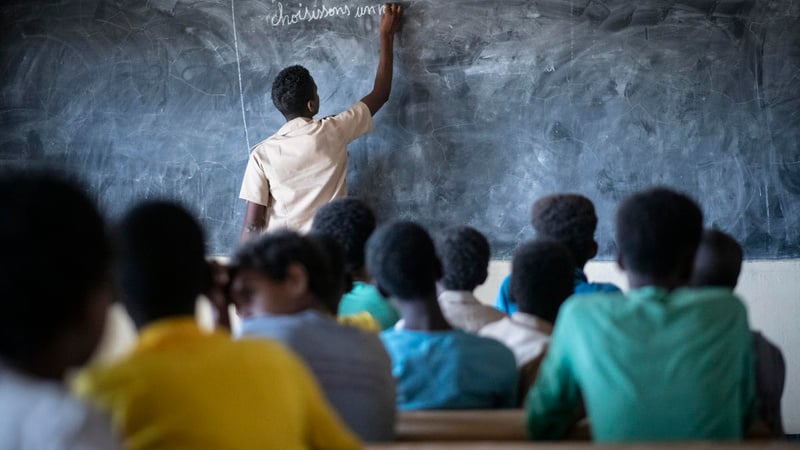
Action. Unity. Impact.
This GRF was perhaps the greatest example of a “whole of society” approach that I have seen in my forty years of humanitarian work... Seeing you stand together, pledge together, deliver results together, was not just impressive, but emotional.
Statements and video archive
View delegates' statements, along with recorded videos of the plenary session, high-level parallel events and Speakers' Corner talks.
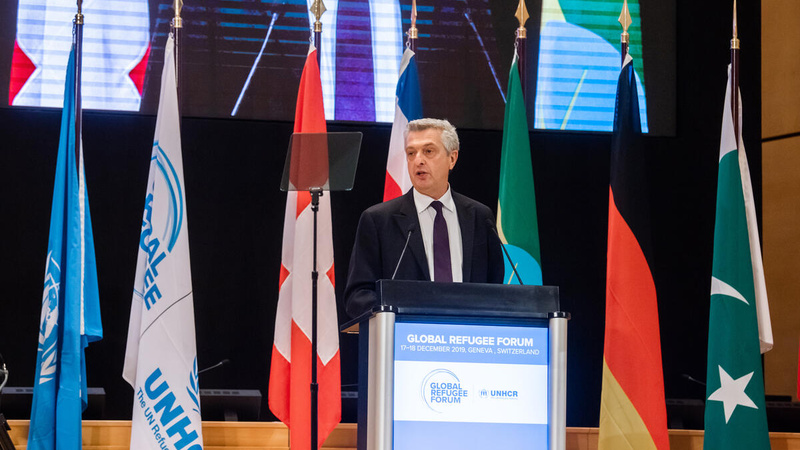
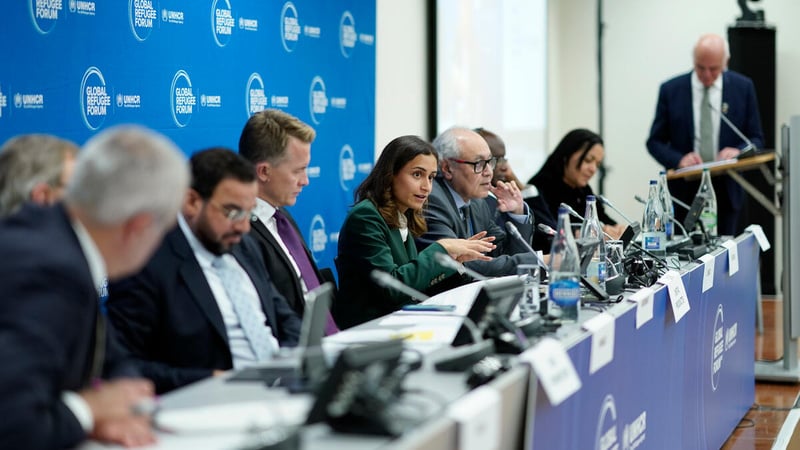
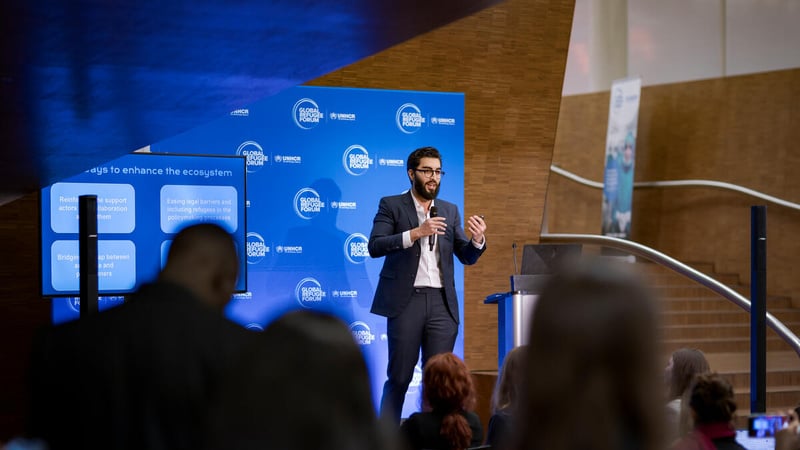
Key documents
Outcomes report
Report on the key outcomes from the Global Refugee Forum 2023 (pdf).
Meaningful participation report
Report on the participation of forcibly displaced and stateless persons.
Programme
Programme outline for the Global Refugee Forum 2023.
List of participants
Final list of participants.
Roadmap
Outline of preparatory meetings and pledging timelines ahead of GRF 2023.
Concept note
Proposed preparation process for GRF 2023.

